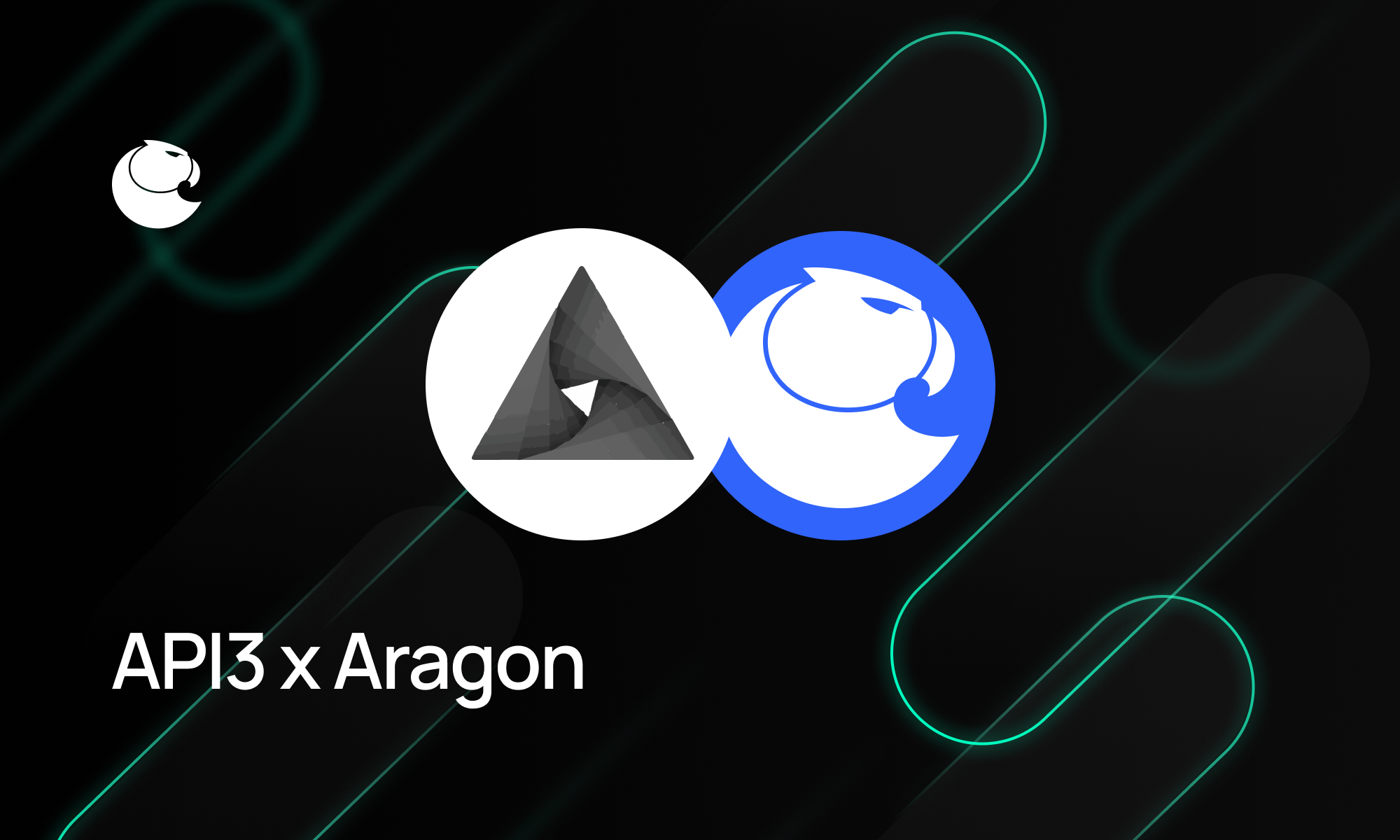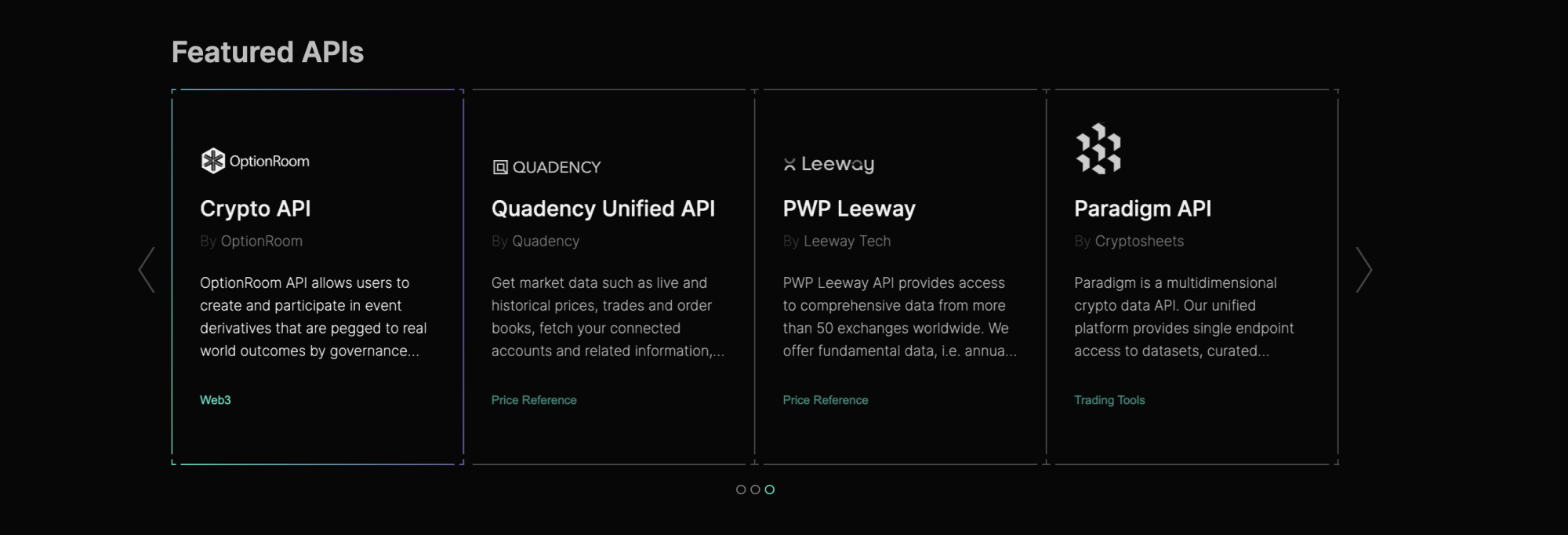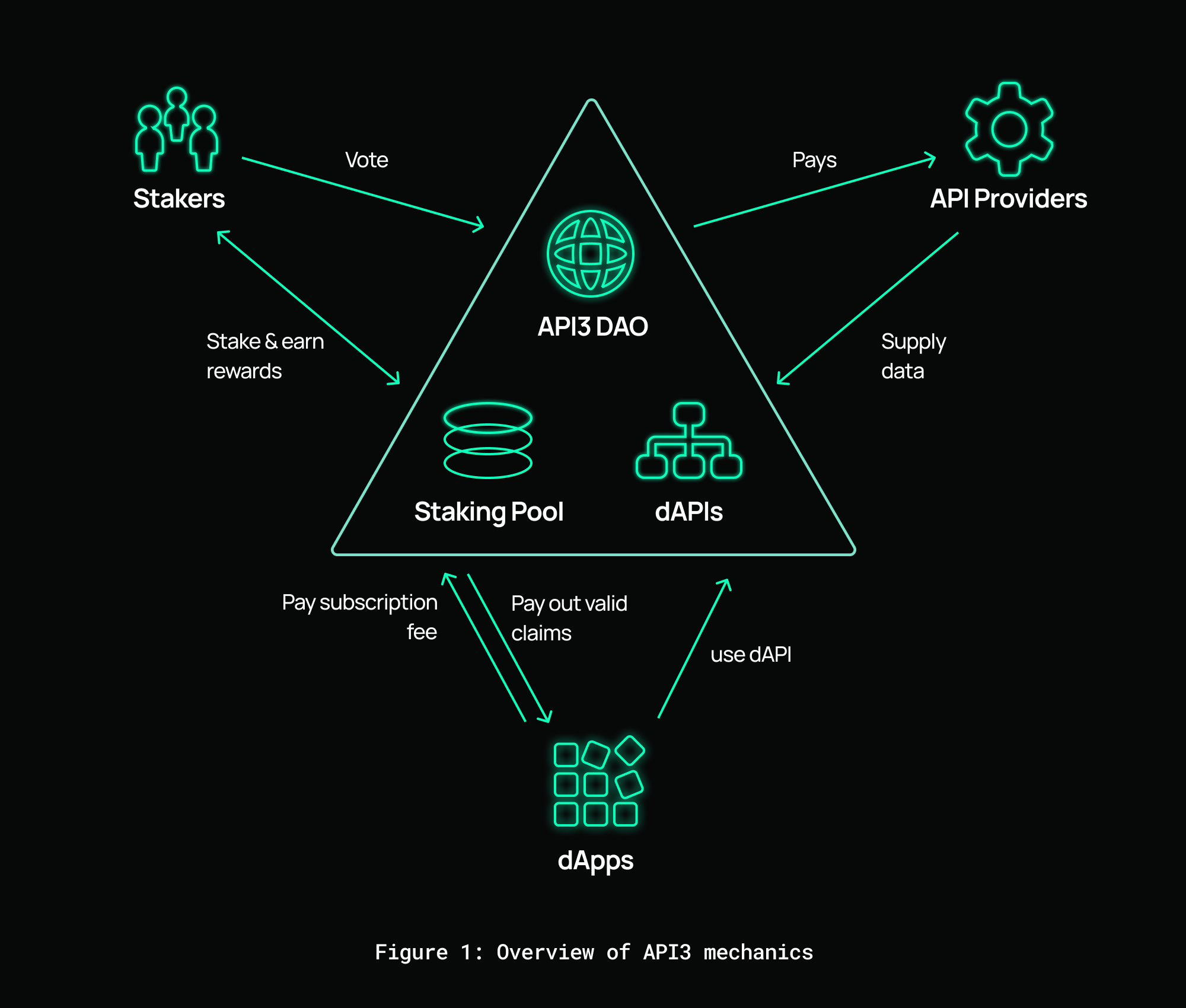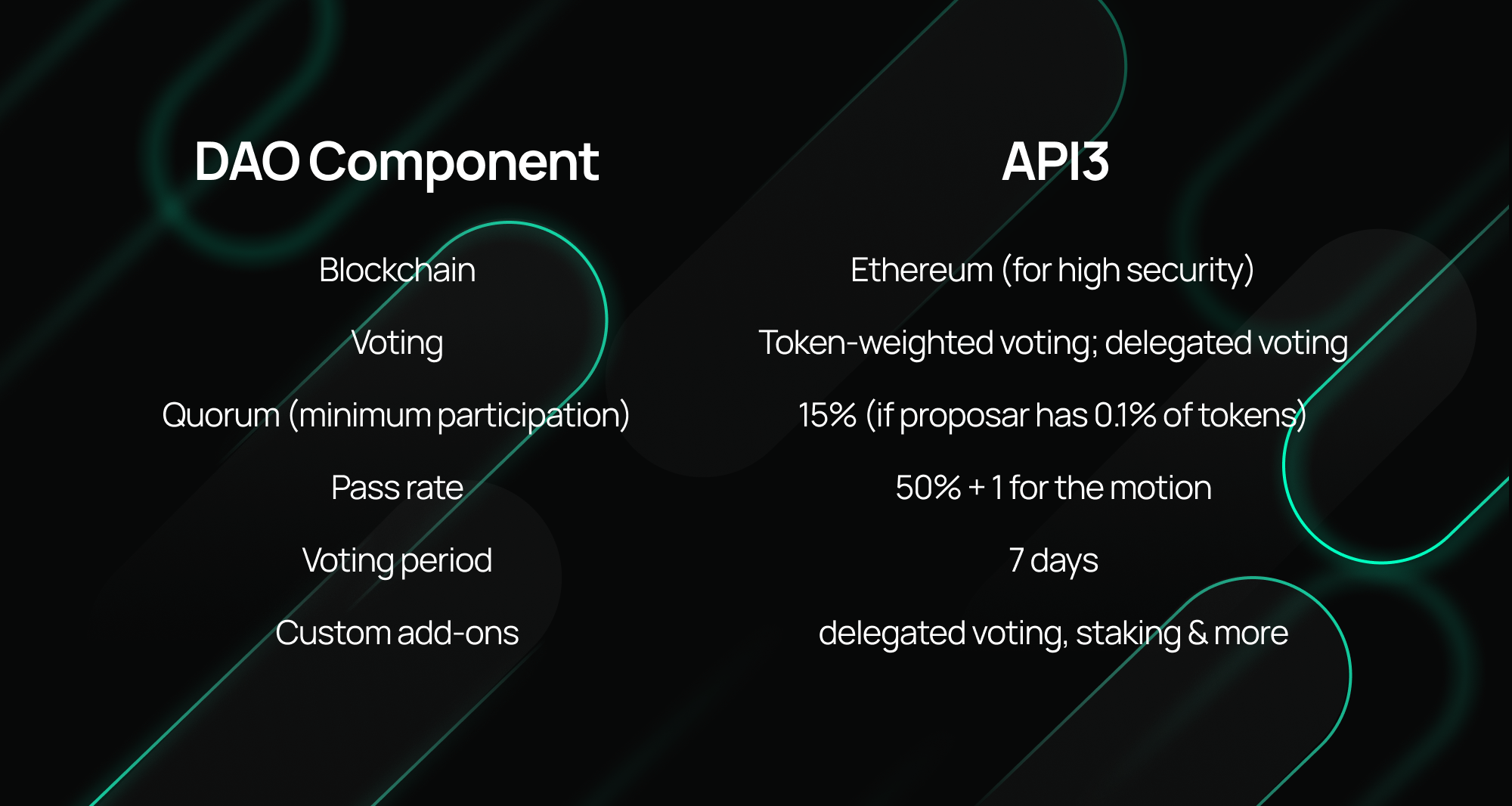API3 Makes Web3 Data Exchange Trustless with Battle-tested aragonOS
“We built using the original version of the Aragon framework (referred to as “Aragon 1”), due to it being the most battle-tested option…” - Burak Benligiray, Core Technical Team Lead of API3.
Aragon

API3 provides a network of first-party oracles - run by data providers themselves - to connect any API to any on-chain smart contract. An oracle “talks” to a smart contract, giving it data from the outside world. Oracles are necessary for smart contracts to have the data they need to run their operations.
Founded in 2020 and with more than 150 data providers already partnering with the protocol, API3 is established as one of the key infrastructure providers powering web3.

What is API3?
API3 makes it easy and safe for data providers to pipe their data into crypto dApps, without the need to have their own blockchain expertise. This makes it seamless for providers ranging from Accuweather (meteorological data) to Amberdata (digital asset data) to stream and sell their data to dApps.
For example, a dApp could sell insurance policies for farmers whose crops need specific temperature conditions in order to go to market at the end of their growing cycle. If the temperature drops below x or rises above y (outside of the crop’s healthy range) within a given timeframe, their insurance policy pays out. By connecting to the Accuweather API, the dApp is able to have smart contracts manage this insurance policy automatically.
With the possibility for web3 organizations to make automated decisions based on smart contracts, the reliability and security of that data becomes increasingly important. This raises several challenges for the data economy in web3:
- Data providers (such as Accuweather) may not have the crypto expertise to put their data into smart contracts
- This leads to the rise of middlemen, who could connect it for them. However, middlemen services are a) expensive, reducing the value capture for data providers and/or making data more expensive for dApps; b) another attack vector that could reduce security of the data - manipulated data could affect the automated actions of the dApps!
With this ‘Oracle problem’ in mind, API3’s Airnode facilitates first party oracles that feed data directly from data providers into smart contracts - removing any third party middlemen from the data preparation process.

What is the API3 DAO?
The API3 token and DAO are central to how the protocol creates trust between API providers and dApps. Not only is the API3 token and DAO a governance mechanism, it is an economic mechanism to provide coverage (and therefore trust) to dApps relying on the data.
DApps pay for the use of data and optional service coverage. This money is used to incentivize the staking of API3 tokens, along with governance power. The staking pool is used to collateralize coverage so that dApps can rest assured they will be paid out in the event that erroneous data causes a loss.
Through this carefully balanced tokenomic model, API3 creates a data exchange economy that is safe and economically attractive for providers and consumers, without data middlemen.

By staking API3 tokens, it's also possible to participate in the governance of the DAO - voting and making proposals. Proposals range from how teams should deliver on the promise of the API3 whitepaper, through to the (less frequent) proposals to change the parameters of the protocol.
API3 has innovated on the proposal process in order to help voters focus on the important issues. Firstly, proposals happen in 3 month cycles, so they can be reviewed in batches. Secondly, API3 introduced two tracks for making proposals - one with higher thresholds to pass that is open to any proposer (with 50% acceptance of those that voted, and 50% minimum support quorum of all possible votes), and another with a lower threshold that is open to API3 token holders with at least 0.1% of the supply (with 50% of acceptance of those that voted, and 15% minimum support quorum of all possible votes).

How does API3 use Aragon?
API3 began with the first version of aragonOS, and has been building customizations on top since the beginning. From the basic building blocks of aragonOS, API3 has innovated to adjust for the needs of how their protocol should function:
- Staking - this is central to the API3 protocol because staked tokens are used to fund optional coverage for API3 datafeed subscriptions.
- Delegated voting - 11% of the voting power in the API3 DAO has been delegated. API3 delegated voting is very fluid and organic. A delegate is an unpaid position that can be held by any DAO member.
- Statistics on staking, delegation and more can be followed in the user-built DAO tracker, and voting takes place through the custom API3 UI
- The Aragon Voting app was customized so that voting power is determined by the API3 staking pool (how much you stake is how much voting power you have, instead of using a MiniMe token)
- Adding a 0.1% voting power requirement in order to create proposals, to ensure those making proposals are vested in the long term interests of the DAO.
With approximately 6,000 participants and $52m (between USDC and the native token) managed in the DAO treasury, these customizations make API3 one of the largest and most innovative DAOs built from aragonOS.
TLDR: API3 is a fully decentralized protocol that makes data interoperable and reliable for web3. The API3 token and DAO are key to realizing that proposition, as stakers are incentivized to put tokens into a coverage pool used for optional subscription protection. With security and reliability at its core, aragonOS was selected as the first building block, and highly customized to make the DAO work to the protocol’s whitepaper design.
Blog: https://medium.com/api3
Site: https://api3.org/
API3 data tracker: https://enormous.cloud/dao/api3/tracker/wallets
Forum: https://forum.api3.org/
DAO: https://api3.org/dao
Github: https://github.com/api3dao
Whitepaper: https://drive.google.com/file/d/1b8QsGPCJJC1pQOcg83-knD1IAOIgCtZZ/view
Subscribe to The Eagle for weekly news on the Aragon Network
